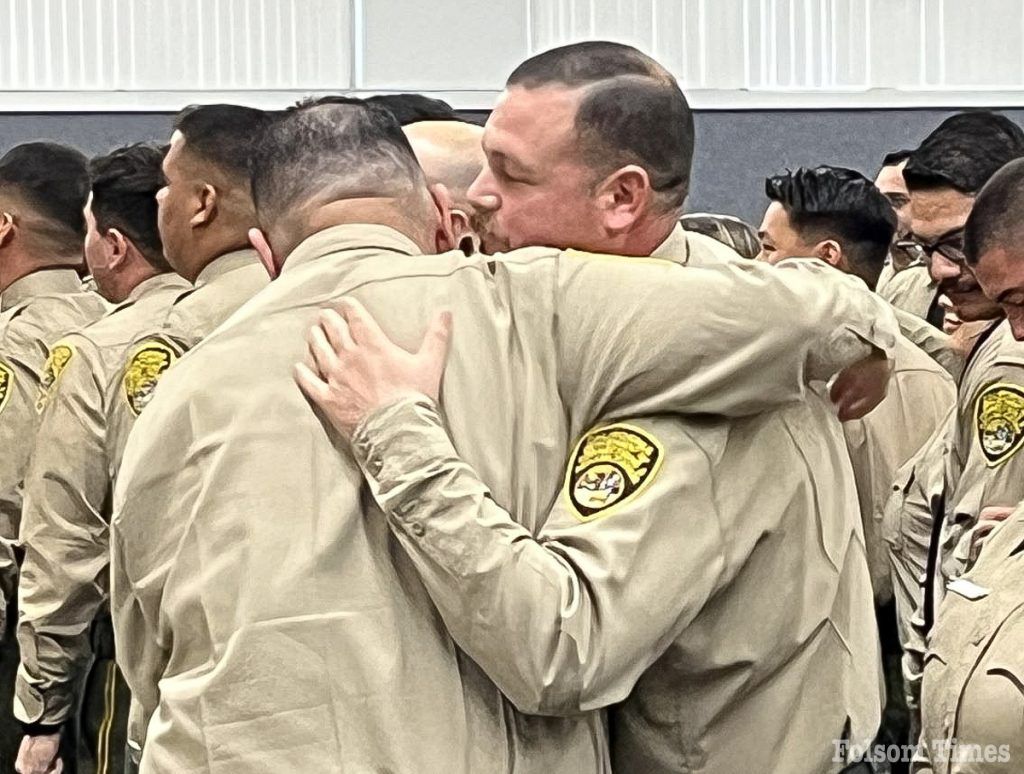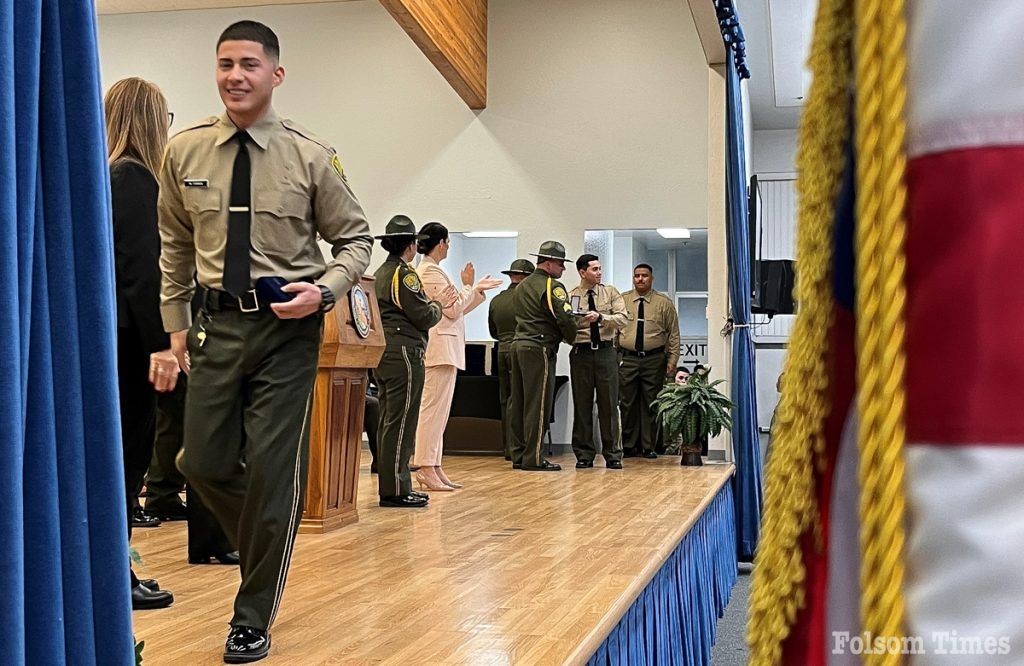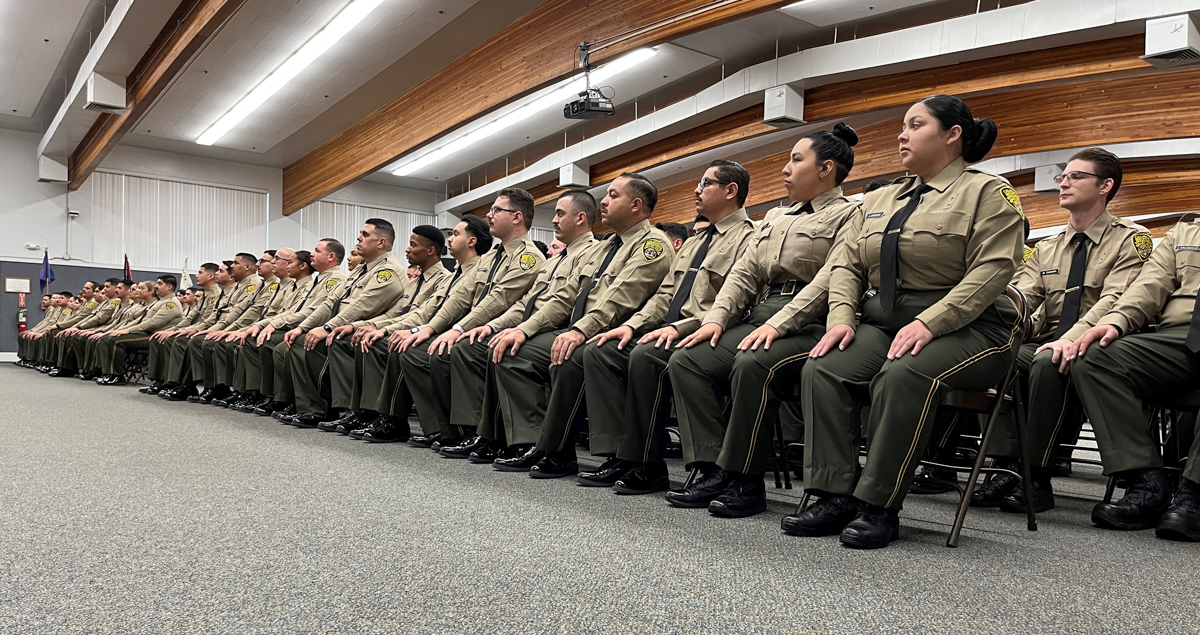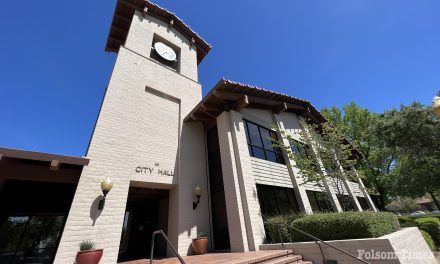On Friday, 136 cadets celebrated their graduation from the Richard A. McGee Correctional Training Center, marking the beginning of their careers as correctional officers with the California Department of Corrections and Rehabilitation (CDCR). This latest class represents a significant step in CDCR’s ongoing efforts to recruit, hire, promote, and retain a diverse and qualified workforce. The graduates will fill positions across multiple California facilities, including locally at Folsom, California State Prison (CSP), Sacramento and others.
“Congratulations to the graduating class and thank you to the family, friends, and staff who supported them during this journey. I commend you all for the hard work you have put in during this 13-week academy. It is now time for you to apply everything you’ve learned,” said Chance Andes, Warden of San Quentin Rehabilitation Center, during his keynote address.
Family and friends gathered to cheer on the cadets as they embarked on their new professional paths. Warden Andes welcomed the 136 new correctional officers, emphasizing their vital role in maintaining safety and fostering rehabilitation within the state’s correctional system. Thirty-seven graduates were women, highlighting CDCR’s commitment to the “30×30” initiative, which aims to have women comprise 30% of correctional officer cadets by 2030.
One of the graduates, Taylor Wolf, reflected on her experience. “I’ve always been a confident person, but joining the academy has strengthened my confidence even more. I am excited to be successful in this career and meet my new brothers and sisters at CSP Solano,” she said.
The Basic Correctional Officer Academy (BCOA), located in Galt, is a 13-week program designed to prepare cadets for the challenges and responsibilities of correctional work. Candidates must complete a rigorous selection process and accept an institutional assignment before attending the academy. Those willing to serve at High Desert State Prison, Pelican Bay, San Quentin, or CSP-Sacramento receive priority in the selection process due to departmental needs.
Cadets who live more than 30 miles from the academy are offered free on-site housing or may choose to live off-site at their own expense. Meals are provided for all cadets during their training. The program requires an initial investment of $1,300 to $1,500 for uniforms, equipment, and supplies. Graduates are eligible to receive an annual uniform allowance of up to $1,000 upon reporting to their assigned institutions.
As these 136 new officers prepare to join the ranks of CDCR, their dedication marks a meaningful contribution to the department’s mission of ensuring public safety and supporting rehabilitation efforts across California.






